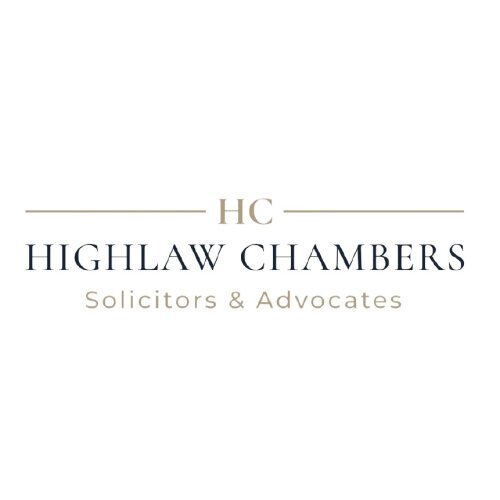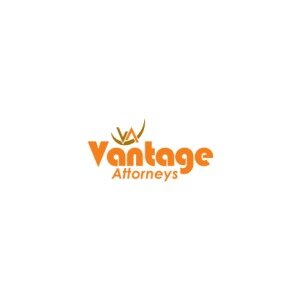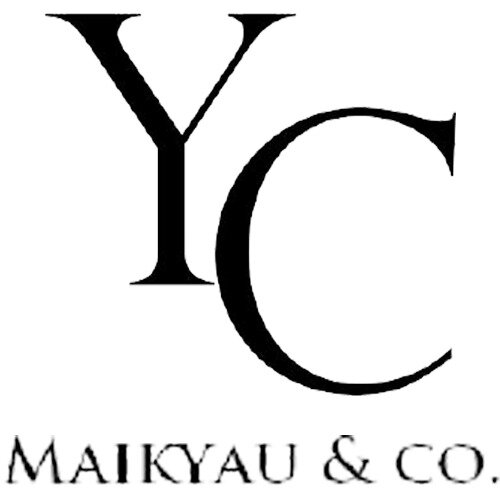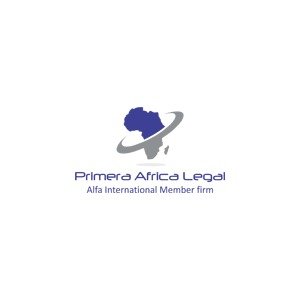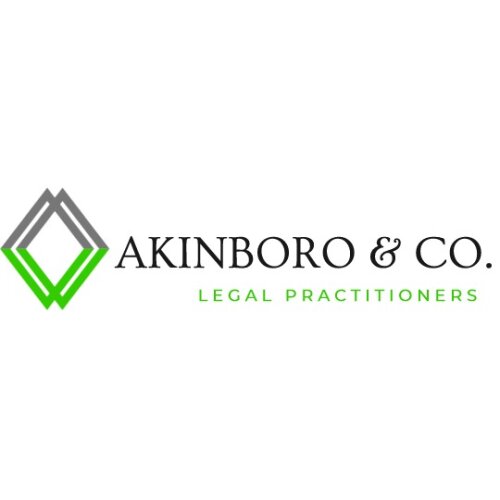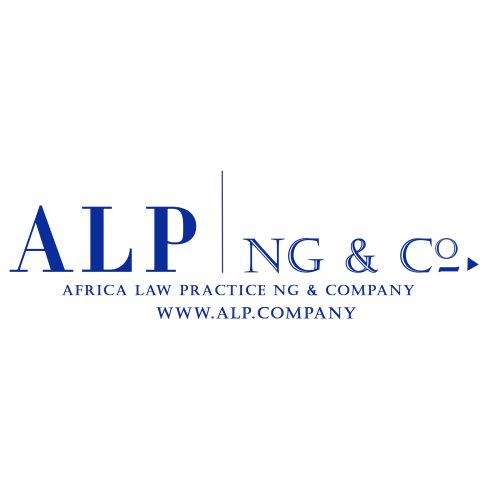Best Water Law Lawyers in Abuja
Share your needs with us, get contacted by law firms.
Free. Takes 2 min.
List of the best lawyers in Abuja, Nigeria
About Water Law in Abuja, Nigeria
Water Law in Abuja, Nigeria governs the use, management, and conservation of water resources including rivers, streams, groundwater, and public water supply systems. Abuja, being the capital city of Nigeria, is subject to both federal and local water regulations. The principal legal frameworks include the Nigerian Water Resources Act as well as subsidiary legislation and policies specific to the Federal Capital Territory (FCT). These laws are designed to regulate water use, ensure equitable access, protect water quality, and manage disputes related to water rights and obligations.
Why You May Need a Lawyer
Understanding and complying with Water Law can be complex due to overlapping federal and local regulations. Here are some common scenarios where you might need legal assistance:
- Ownership or usage disputes over water sources such as boreholes, wells, or streams
- Land development projects requiring water extraction or alteration of waterways
- Getting permits or licenses for commercial or agricultural water use
- Compliance with water quality, sanitation, and environmental standards
- Challenging government actions like compulsory acquisition of water resources
- Addressing water pollution or contamination disputes
- Dealing with disruptions to water supply or allegations of unlawful water connections
- Understanding rights and responsibilities when living near communal water bodies
In these situations, a Water Law lawyer can help you interpret relevant laws, secure necessary approvals, protect your interests, and represent you in negotiations or court proceedings.
Local Laws Overview
Water Law in Abuja is shaped by national laws such as the Water Resources Act and the River Basin Development Authorities Act, as well as FCT-specific regulations. Key aspects include:
- Licensing and Permits: Commercial or large-scale water extraction (for example, from boreholes or rivers) usually requires permits from relevant authorities, such as the FCT Water Board or the Federal Ministry of Water Resources.
- Ownership of Water: Most natural water sources and large water bodies are considered public property managed by the government, though individuals may access water for personal use subject to certain conditions.
- Water Quality and Pollution: Strict regulations govern the discharge of waste into water bodies to protect water quality and public health.
- Development Controls: Construction or land development impacting water resources is subject to environmental and planning approval.
- Community Rights: Local communities or associations may have recognized rights to communal water sources, though these must be balanced against governmental regulations.
- Enforcement and Dispute Resolution: Authorities have powers to enforce Water Law, impose sanctions, and mediate or resolve disputes.
Understanding these legal provisions is essential for any individual or business engaged in water use or management in Abuja.
Frequently Asked Questions
What are the main laws governing water rights and usage in Abuja?
The main laws include the Water Resources Act, the River Basin Development Authorities Act, and various local regulations established by the FCT Water Board and other agencies.
Do I need a permit to drill a borehole on my property?
Yes, most private borehole drilling in Abuja requires a permit from the FCT Water Board in accordance with local regulations. The process includes submitting an application, undergoing an inspection, and paying applicable fees.
Can I use water from a nearby stream for my farm or home?
Limited use of nearby surface water for personal or small-scale purposes is generally allowed, but commercial or large-scale usage usually requires a license or permit from appropriate authorities.
Who is responsible for public water supply in Abuja?
The FCT Water Board manages the public water supply infrastructure including water treatment, distribution, and billing.
How can I report water pollution or illegal dumping?
You can report suspected pollution or illegal dumping to the FCT Water Board, the Federal Ministry of Water Resources, or the National Environmental Standards and Regulations Enforcement Agency (NESREA).
Are there penalties for illegal water connections or unauthorized water use?
Yes, there are sanctions including fines, disconnection of supply, and possible legal action for unauthorized water usage, tampering with water meters, or illegal connections.
Can the government take water from my land?
The government has the authority to manage and regulate water resources for public interest, but due process must be followed including, in some cases, compensation for affected landowners.
How can I challenge a water bill or alleged arrears?
You can formally dispute water bills with the FCT Water Board. If not resolved, you may seek legal advice or mediation, and possibly pursue your case in relevant courts or administrative tribunals.
What environmental standards apply to businesses using large volumes of water?
Businesses must comply with national and local environmental, sanitation, and water quality standards. This may include treatment of wastewater before discharge and regular environmental audits.
Where can I get legal help for water law issues in Abuja?
You can consult a qualified lawyer specializing in Environmental or Water Law, or seek assistance from local legal aid services and community advocacy organizations.
Additional Resources
If you need further information or assistance regarding Water Law in Abuja, consider reaching out to:
- FCT Water Board - Oversees water supply, connections, and infrastructure in Abuja
- Federal Ministry of Water Resources - National agency in charge of policy, permits, and regulation of water resources
- National Environmental Standards and Regulations Enforcement Agency (NESREA) - Regulates environmental and pollution control, including water-related issues
- Legal Aid Council of Nigeria - Provides free or low-cost legal services to eligible individuals
- Nigerian Bar Association (NBA) Abuja Branch - For referral to experienced Water Law practitioners
Next Steps
If you are facing a Water Law issue in Abuja, here are recommended steps you can take:
- Document your situation including correspondence, permits, agreements, or any disputes related to water use
- Contact relevant authorities such as the FCT Water Board or Federal Ministry of Water Resources for guidance or to lodge a complaint
- Consult a legal practitioner with experience in Water Law to review your case and advise you on your rights and obligations
- Seek mediation or alternative dispute resolution where suitable before resorting to litigation
- If your matter involves criminal activity or regulatory breaches, consider informing relevant enforcement agencies
Legal proceedings or regulatory processes can be technical, so seeking timely and professional legal advice will help you protect your interests and achieve the best possible outcome.
Lawzana helps you find the best lawyers and law firms in Abuja through a curated and pre-screened list of qualified legal professionals. Our platform offers rankings and detailed profiles of attorneys and law firms, allowing you to compare based on practice areas, including Water Law, experience, and client feedback.
Each profile includes a description of the firm's areas of practice, client reviews, team members and partners, year of establishment, spoken languages, office locations, contact information, social media presence, and any published articles or resources. Most firms on our platform speak English and are experienced in both local and international legal matters.
Get a quote from top-rated law firms in Abuja, Nigeria — quickly, securely, and without unnecessary hassle.
Disclaimer:
The information provided on this page is for general informational purposes only and does not constitute legal advice. While we strive to ensure the accuracy and relevance of the content, legal information may change over time, and interpretations of the law can vary. You should always consult with a qualified legal professional for advice specific to your situation.
We disclaim all liability for actions taken or not taken based on the content of this page. If you believe any information is incorrect or outdated, please contact us, and we will review and update it where appropriate.




